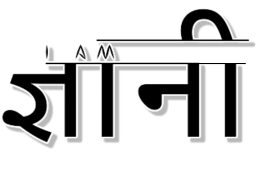Computer languages, also known as programming languages, are formal languages used to communicate instructions to a computer. They allow humans to write programs and develop software applications that can be executed by computers. There are numerous computer languages, each with its own syntax, semantics, and areas of application. Here are some widely used programming languages:
Python:
Python is a versatile and beginner-friendly language known for its simplicity and readability. It has a wide range of applications, including web development, data analysis, scientific computing, artificial intelligence, and automation.python is a high-level, versatile programming language known for its simplicity and readability. Here are some key points about Python:
- Ease of Use: Python is designed to be beginner-friendly and emphasizes code readability, making it easy to understand and write. Its clean syntax and indentation-based block structure make it highly readable, reducing the chances of errors and improving code maintainability.
- Versatility: Python is a versatile language used in various domains, including web development, data analysis, machine learning, scientific computing, artificial intelligence, automation, and more. It has a vast ecosystem of libraries and frameworks that facilitate development in different areas.
- Large Community and Libraries: Python has a large and active community of developers who contribute to its growth and provide support. The Python Package Index (PyPI) hosts a vast collection of third-party libraries and frameworks, such as NumPy, Pandas, Django, Flask, TensorFlow, and PyTorch, which simplify complex tasks and accelerate development.
- Data Science and Machine Learning: Python has become a leading language in the fields of data science and machine learning. It offers powerful libraries like NumPy, Pandas, and Scikit-learn for data manipulation, analysis, and modeling. Frameworks like TensorFlow and PyTorch are widely used for deep learning and neural network-based applications.
- Web Development: Python is commonly used for web development with frameworks like Django and Flask. Django is a full-featured web framework that follows the Model-View-Controller (MVC) pattern, while Flask is a lightweight micro-framework that provides flexibility and simplicity for smaller projects.
- Automation and Scripting: Python’s simplicity and ease of use make it ideal for automation tasks and scripting. It can be used to automate repetitive tasks, create scripts to manipulate files and data, and build command-line tools.
Java:
Java is a popular and versatile language used for building enterprise-level applications, mobile apps (Android), and large-scale systems. It is known for its platform independence, as Java programs can run on different operating systems without modification.
Java is a popular, object-oriented programming language known for its platform independence, robustness, and extensive ecosystem. Here are some key points about Java:
- Platform Independence: Java programs are compiled into bytecode, which can be executed on any platform with a Java Virtual Machine (JVM). This “write once, run anywhere” feature enables Java applications to run on different operating systems without requiring recompilation.
- Object-Oriented Programming: Java is designed around the object-oriented programming (OOP) paradigm. It supports concepts such as classes, objects, inheritance, polymorphism, and encapsulation, making it suitable for building modular and maintainable applications.
- Robustness and Reliability: Java’s strong type checking, exception handling, and automatic memory management (garbage collection) contribute to the language’s robustness and reliability. It helps developers write more secure and stable code, minimizing runtime errors and memory leaks.
- Rich Standard Library: Java comes with a comprehensive standard library that provides a wide range of functionality for tasks like input/output operations, networking, database connectivity, and more. This library simplifies development by offering ready-to-use components.
- Large Ecosystem: Java has a vast ecosystem of frameworks, tools, and libraries that facilitate rapid development. Frameworks like Spring, Hibernate, and JavaServer Faces (JSF) are widely used for enterprise-level applications. Additionally, Java has a thriving community that contributes to its growth and provides support.
- Enterprise Applications: Java is extensively used for developing large-scale, enterprise-level applications. It offers features like multithreading, scalability, and security, making it well-suited for server-side development. Java Enterprise Edition (Java EE) provides additional APIs and tools for building distributed and web-based applications.
JavaScript:
JavaScript is a scripting language primarily used for web development. It enables interactive web pages, web applications, and server-side development with frameworks like Node.js. JavaScript is widely supported by modern browsers.
JavaScript is a widely used scripting language primarily used for web development. Here are some key points about JavaScript:
- Client-Side Scripting: JavaScript is primarily used as a client-side scripting language, running in a web browser to enhance interactivity and dynamic behavior of web pages. It allows developers to manipulate HTML elements, handle events, validate forms, and create interactive user interfaces.
- Web Development: JavaScript is an essential component of modern web development. It is used for tasks such as form validation, DOM manipulation, AJAX requests, and creating interactive web elements like sliders, carousels, and dropdown menus. JavaScript frameworks like React, Angular, and Vue.js are popular for building complex web applications.
- Cross-Platform Compatibility: JavaScript is supported by all major web browsers, making it a cross-platform language. This enables consistent functionality and interactivity across different browsers and operating systems.
C++:
C++ is a powerful and efficient language used for system-level programming, game development, and performance-critical applications. It provides low-level control over hardware resources and is an extension of the C programming language.
C++ is a powerful and versatile programming language known for its efficiency, performance, and low-level control. Here are some key points about C++:
- Object-Oriented Programming: C++ supports the object-oriented programming (OOP) paradigm, allowing developers to create classes, objects, and use concepts like inheritance, polymorphism, and encapsulation. It provides a structured approach to building modular and reusable code.
- Efficiency and Performance: C++ is known for its efficiency and high-performance capabilities. It provides low-level access to memory, allowing for fine-grained control over resources. C++ programs can be optimized for speed and memory usage, making it suitable for performance-critical applications such as game development, embedded systems, and high-frequency trading.
- Standard Template Library (STL): C++ includes the Standard Template Library (STL), which provides a collection of powerful and generic data structures and algorithms. The STL simplifies common programming tasks, such as working with containers (vectors, lists, maps), performing algorithms (sorting, searching), and managing memory.
- Compatibility and Portability: C++ code can be compiled and executed on a wide range of platforms and operating systems. It offers a high degree of portability, allowing developers to write code that can be easily transferred and executed on different systems.
- Widely Used: C++ is widely used in various domains, including system programming, game development, embedded systems, scientific computing, and high-performance applications. It forms the backbone of many popular software frameworks and libraries.
- Community and Resources: C++ has a strong community of developers who contribute to its growth and provide support. There are numerous learning resources, online communities, and reference materials available to help developers learn and master the language.


